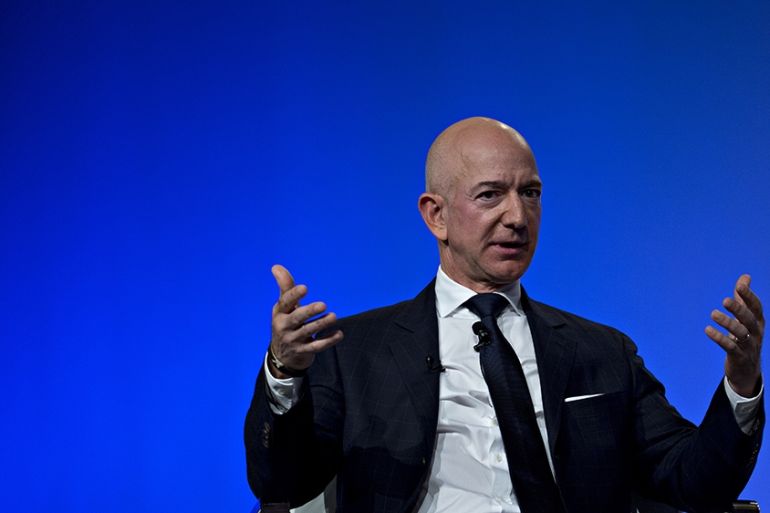Amazon wants to send more than 3,000 satellites into space
In an effort to offer broadband, the company has requested the US government allow its Kuiper satellites into space.

Amazon.com Inc. asked for U.S. permission to launch 3,236 communications satellites, joining a new space race to offer internet service from low orbits and challenge the fleet planned by Elon Musk’s SpaceX.
Amazon in a July 4 filing told the Federal Communications Commission its Kuiper satellites will deliver broadband to tens of millions of consumers and businesses that now lack adequate access to the internet. The agency coordinates trajectories and radio-frequency use.
Keep reading
list of 4 itemsBoeing postpones launch of Starliner space capsule after technical fault
China launches Chang’e-6 probe to study dark side of the moon
China launches historic mission to far side of the moon
The FCC already has approved nearly 13,000 low-Earth orbit satellites. Those include 11,943 for Musk’s Space Exploration Technologies Corp., which launched an initial batch of 60 spacecraft in May.
At low-Earth orbit — altitudes of 112 to 1,200 miles (or about 180 to 2,000 kilometers) — satellites need to race around the globe to stay aloft, completing orbits in as little as 90 minutes. As one moves toward the horizon it will hand off signal duties to the next satellite coming by. Many satellites are needed if continuous, widespread coverage is the goal.
Amazon in its FCC application said its satellites would operate at altitudes of about 370-to-390 miles (590-to-630 kilometers).
Long-Term Project
Amazon Chief Executive Officer Jeff Bezos last month said the Kuiper project will cost “multiple billions of dollars.” The project is separate from Bezos’s space launch vehicle maker, Blue Origin LLC.
“This is a long-term project that envisions serving tens of millions of people who lack basic access to broadband internet,” Amazon said in a statement in April, when the company’s satellite program first became public in a filing with the International Telecommunications Union.
In its FCC filing, Amazon said it will help serve U.S. communities “by offering fixed broadband communications services to rural and hard-to-reach areas.”
The Kuiper System will help mobile network operators to expand wireless services, Amazon said in its application. It also offered the prospect of “high-throughput mobile broadband connectivity services for aircraft, maritime vessels, and land vehicles.”
Amazon cited FCC studies that say 21 million Americans lack fixed, residential broadband and 33 million Americans don’t have access to speedy mobile service. Worldwide, 3.8 billion people remain without fast and reliable broadband service, according to the application.